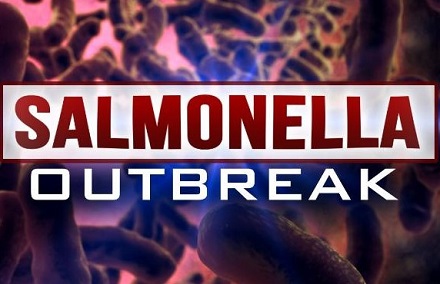Kentucky public health officials announced another food safety alert on Monday, this time for Salmonella.
The Department for Public Health says 16 Kentuckians have tested positive with a strain of Salmonella Carrau that has been linked by the Centers of Disease Control and Prevention to pre-cut melon including cantaloupe, watermelon and honeydew.
Caito Foods from Indianapolis, Indiana, which distributed the melon products, issued a recall notice on April 12 for all pre-cut melon products distributed in the U.S. Since the label may not clearly indicate that the melon product is from Caito Foods, consumers should discard and not purchase, eat, sell or serve any pre-cut melon products at this time. This recall does not include whole melons.
These products were distributed in Illinois, Indiana, Iowa, Kansas, Kentucky, Michigan, Minnesota, Missouri, Nebraska, New York, North Carolina, Ohio, Pennsylvania, Tennessee, West Virginia, and Wisconsin.
Stores in Kentucky that carry the product include Kroger (with a plant identifier code of GHMW), Gordon Food Service (with the code SN01), and Trader Joes (with the code P-003).
The Centers for Disease Control and Prevention say there have been 93 reported cases of Salmonella in nine states, resulting in 23 hospitalizations. Most of those affected were over the age of 50. There have been no deaths reported, thus far.
Most people infected with Salmonella develop symptoms 12 to 72 hours after eating a contaminated product, according to the CDC. The symptoms include diarrhea, fever and abdominal cramps.
“Exposure to Salmonella bacteria can be debilitating and potentially life-threatening, especially for small children and individuals with weakened immune systems,” said Dr. Jeff Howard, DPH commissioner. “Anyone experiencing signs or symptoms of illness should seek medical care and clinicians should be aware of this ongoing outbreak to ensure suspected cases receive testing and investigative follow-up. All Salmonella cases should be reported to the local health department.”
Healthcare providers in Kentucky are being notified of the outbreak and are being advised to be alert for patients experiencing acute diarrheal illness, which could be associated with Salmonella infection. Appropriate testing and investigative work will need to be completed to determine which cases are outbreak-associated.
Salmonella infection is an extremely common infection in Kentucky, so lab testing is needed to confirm if an illness is linked to this outbreak.
Meanwhile, the CDC has not yet issued a report on the source of the ongoing E. coli outbreak, which preliminary investigation has determined came from ground beef, eaten both at home and in restaurants. State health officials say there have been 55 confirmed cases of E. coli in Kentucky as of April 12.
By Tom Latek, Kentucky Today









